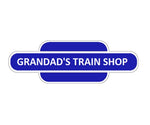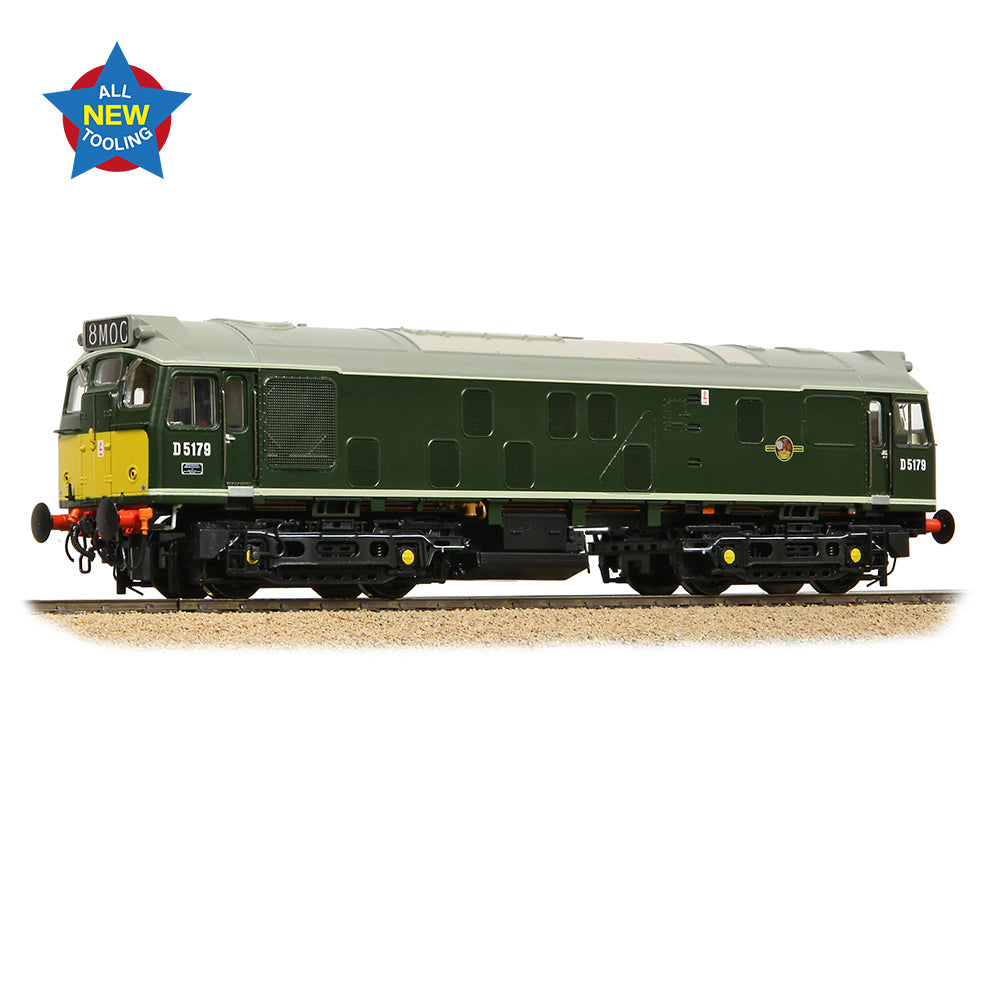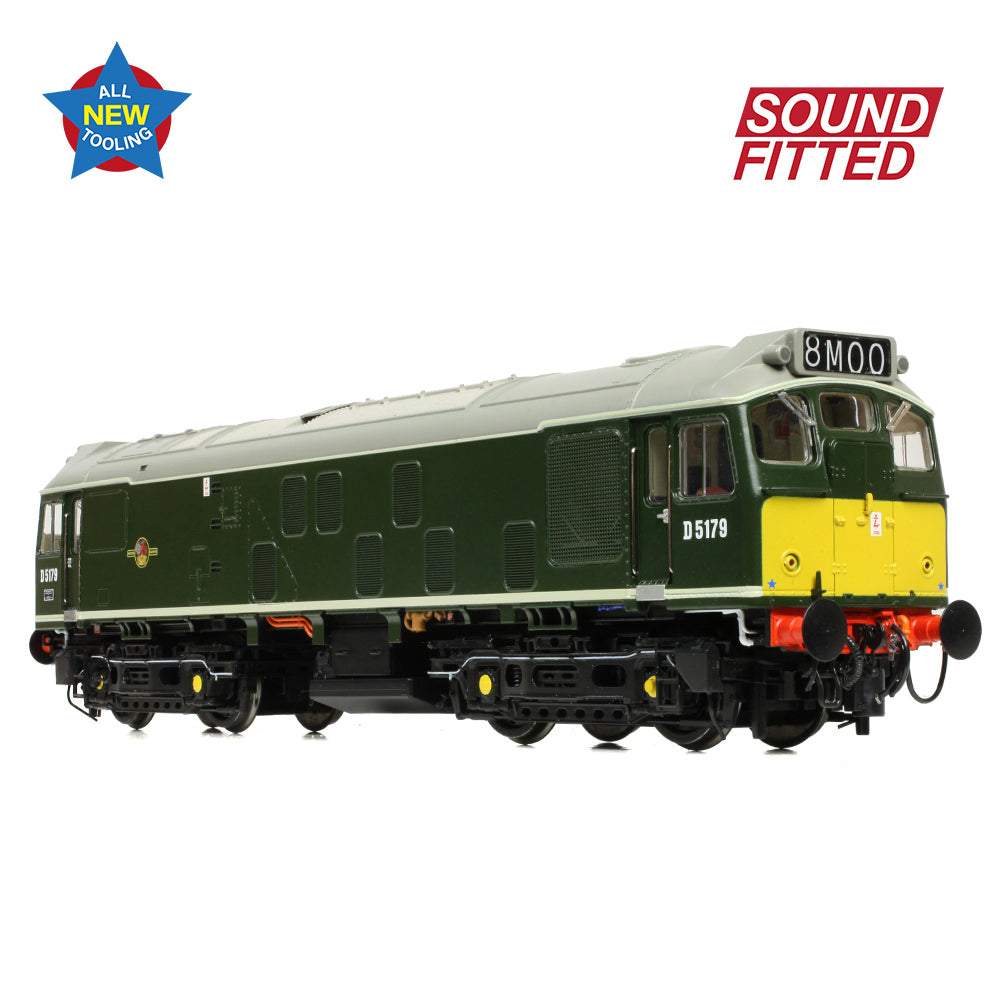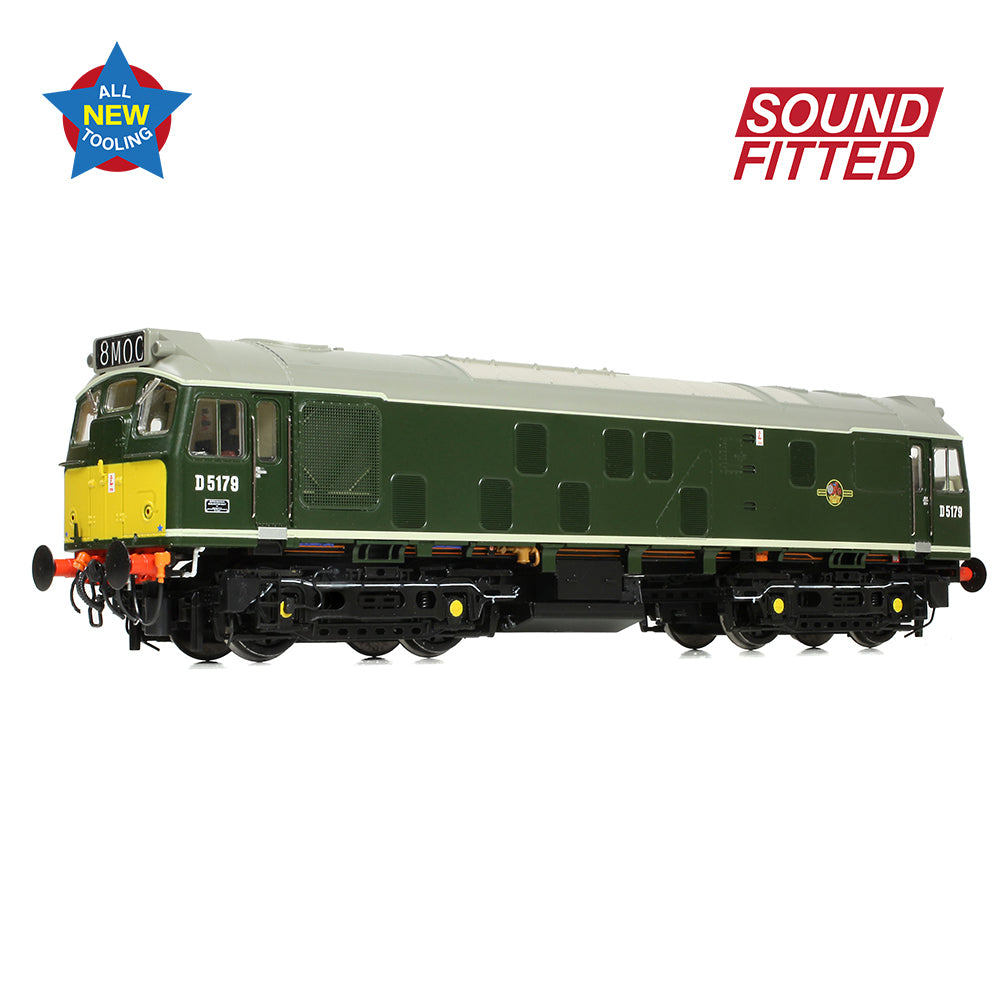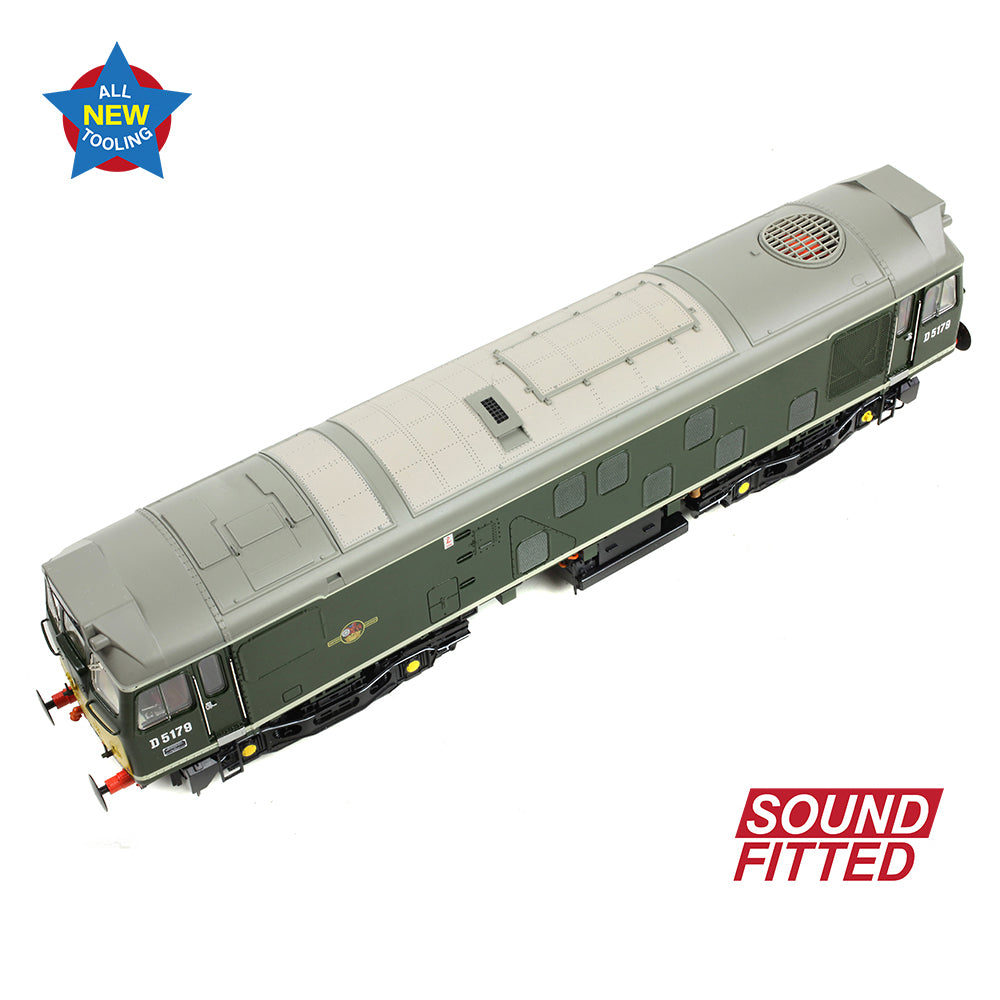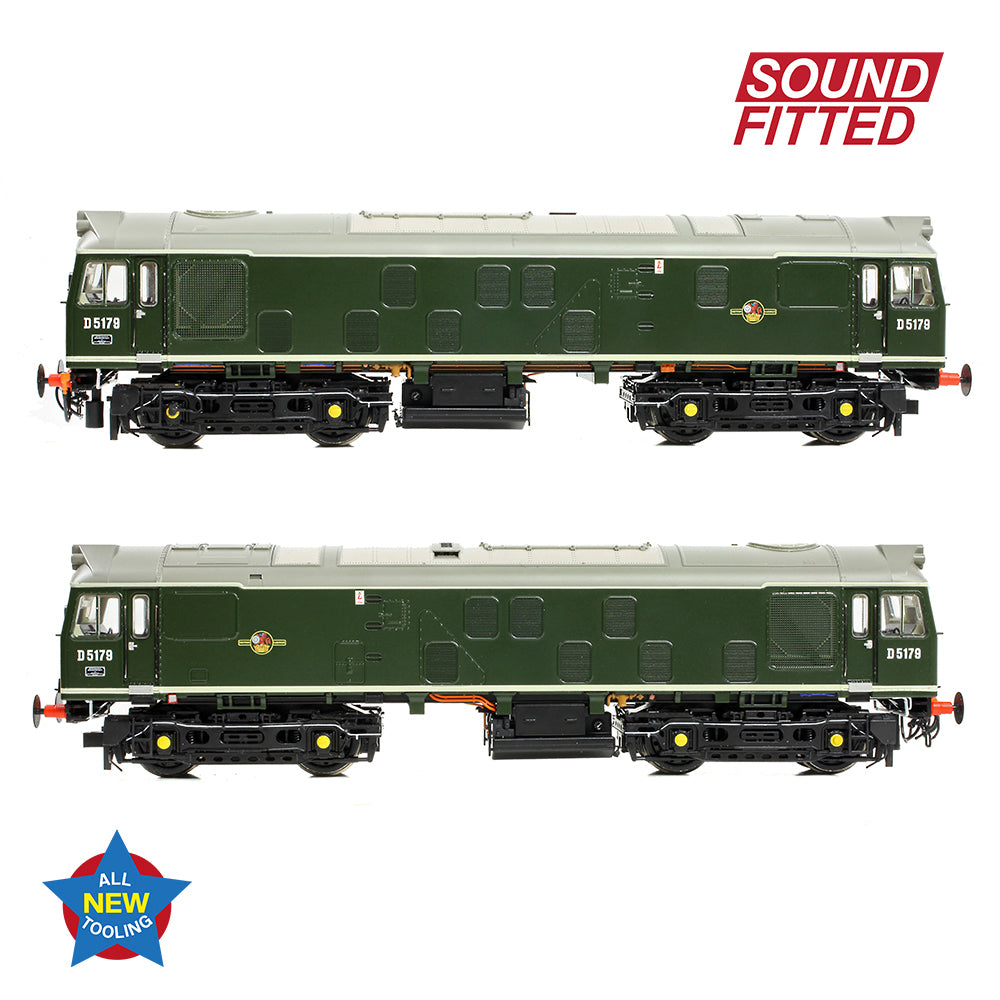Bachmann 32-343ASF - Class 25/1 D5179 BR Green (Small Yellow Panels)
Bachmann 32-343ASF - Class 25/1 D5179 BR Green (Small Yellow Panels)
OO Gauge
Pickup available at Inside Selby Superbowl
Usually ready in 2-4 days
The Class 25 Diesel Locomotive has long been a fixture of the Bachmann Branchline OO scale range, but this all-new model owes nothing to its predecessors. Designed from the rails up, this new family Class 25s from Bachmann Branchline encompasses Class 25/1s, 25/2s and 25/3s, capturing the differences – some small, some anything but – between the three distinct types. Regardless of the particular locomotive being depicted, every model features high fidelity mouldings and numerous separately fitted parts, with the utmost attention to detail paid to the features of the prototype.
Our new Class 25 is brought to life with an exquisite livery application using true-to-prototype colours, fonts and logos. Following the precedent set by the Bachmann Branchline Class 47, and subsequently the 37 and 31 too, the Class 25 features a full lighting suite and is available in three formats; standard, SOUND FITTED as in the case of this example which is pre-fitted with a DCC Sound Decoder, or SOUND FITTED DELUXE with the award winning motorised radiator fan and authentic tinted windscreen glazing features!
- Bachmann Branchline OO Scale
- Era 5
- Pristine BR Green (Small Yellow Panels) livery
- Running No. D5179
- SOUND FITTED- Fitted with a Zimo MS450P22 DCC Sound Decoder – See below for the function list
- Length 202mm
DETAIL VARIATIONS SPECIFIC TO THIS MODEL
- Early Body with Bodyside Grilles – Class 25/1
- Original Gangway Doors
- Glazed Headcode Panels – displaying Blinds 8M00 and 8K05
- Original Engine Exhaust
- Plated Boiler Exhaust
- Plated Bodyside Boiler Vent
- Bodyside Steps
- Original Bodyside Water Filler Door
- Original Battery Boxes
- Late Pattern Sand Boxes
- 510 Gallon Fuel Tank
BACHMANN BRANCHLINE CLASS 25 SPECIFICATION
MECHANISM:
- Five pole, twin shaft motor with two flywheels providing drive to both bogies
- All axle drive
- Electrical pickup from all wheels
- Separate metal bearings fitted to each axle
- Diecast metal chassis block and bogie towers
- Diecast metal gearboxes, with gearing arranged for prototypical running speeds and haulage capabilities
- 5mm (OO gauge) wheels to NEM310 & NEM311 standards with authentic profile and detailing
- Detachable coupling pockets to NEM362 standards fitted to each bogie
- Designed to operate on curves of second radius (438mm) or greater
DETAILING:
- Bogies constructed from multiple components featuring full relief detail
- Rotating radiator fan, driven by an independent motor and gearbox, operated as part of the sound project on DCC and Analogue control (SOUND FITTED DELUXE models only)
- Tinted windscreen glazing (Driver and Second Man windscreens only as per the prototype, SOUND FITTED DELUXE models only)
- Separately applied metal detail parts, including grab handles, windscreen wipers and etched radiator grilles
- Sprung metal buffers
- Cab interior detailing which includes the control desk, seats and ancillary equipment, all with era-specific decoration
- Each model supplied with a full set of decorated, model-specific bufferbeam pipework and accessory parts including three-piece, body-mounted snow ploughs where appropriate
LIGHTING:
- Directional lighting, including illuminated headcode panels, switchable on/off at either end on DCC or Analogue control
- Cab lighting*, assigned to two DCC functions for separate switching of each
- Separately switched Engine Room lighting* (*when used on DCC)
- Authentic light colours and temperatures selected for each model based on era and application
DCC:
- Plux22 DCC decoder interface
SOUND:
- A quality speaker employed for optimum sound reproduction, fitted to every model as standard
- Zimo MS450P22 DCC Sound Decoder fitted to SOUND FITTED and SOUND FITTED DELUXE versions
- Sound files produced specifically for the Bachmann Branchline Class 25 using recordings from real locomotives
- SOUND FITTED and SOUND FITTED DELUXE models operate on DCC and Analogue control as supplied. On Analogue, an authentic engine start up sequence and running sounds are produced when power is applied
LIVERY APPLICATION:
- Authentic liveries applied to all models
- Multiple paint applications employed on each model using BR and corporate specification colours
- Logos, numerals and text added as appropriate using multi-stage tampo printing using authentic typefaces, logos and colours
- In addition, where applicable Etched Nameplates are also provided
SOUNDS
F0 - Directional Lights - On / Off (plus Light Switch Sound)
F1 - Sound On/Off
F2 - Brake
F3 - Single Horn
F4 - Two-Tone Horn
F5 - Light Engine Mode
F6 - Engine Idle
F7 - Speed Lock
F8 - Cold Start
F9 - Flange Squeal (Speed Related)
F10 - Despatch Whistle
F11 - Buffering Up
F12 - Coupling Up / Uncoupling
F13 - Compressor
F14 - Fan Noise
F15 - Detonators
F16 - Combined Pump
F17 - Auto Wagon Buffering
F18 - On - Driver's Door Opening / Off - Driver's Door Closing
F19 - Fade All Sounds
F20 - No. 1 End (Fan) Directional Lights Off
F21 - No. 2 End (non-Fan) Directional Lights Off
F22 - Cab Light On - No. 1 End
F23 - Cab Light On - No. 2 End
F24 - Engine Room Lights
F25 - Automatic Drain Trap
F26 - Shunt Mode
F27 - Volume Down
F28 - Volume Up
Analogue Users: Please note that normal load running sounds and any other automatic or randomised sounds will also operate when this model is used on analogue control (DC) straight from the box!
CLASS 25 HISTORY
Following publication of the British Railways Modernization Plan in 1955, the British Rail Class 25 diesels were introduced into service in 1961 and were more powerful than the Class 24 Bo-Bo diesels introduced three years earlier. A total of 325 Class 25 Diesel Locomotives over several sub-types were built, most at BR Derby, but some were constructed at Crewe and Darlington with a further 26 built by Beyer Peacock of Manchester.
As Type 2 locomotives, the Class 25s were often seen working in pairs to increase operational power. The class was, however, a true mixed traffic locomotive, equally at home on either passenger or mixed freight duties. They were well suited to the task of replacing steam traction on duties over a wide area of the British Railways system and were allocated to numerous depots across the Eastern, London Midland, Scottish and Western Regions. Although not allocated to the Southern Region, they were often seen on incoming and through traffic from the other regions. Following closure of numerous lines in the late 1960s and the resultant loss of passenger work, during the 70s & 80s they were more likely to be seen on either freight, newspaper, parcels or specialized duties. with notable examples including the provision of train heating for steam hauled specials in their swansong years. The Class was finally withdrawn from service in 1987, but twenty preserved locomotives survive to the present day.
